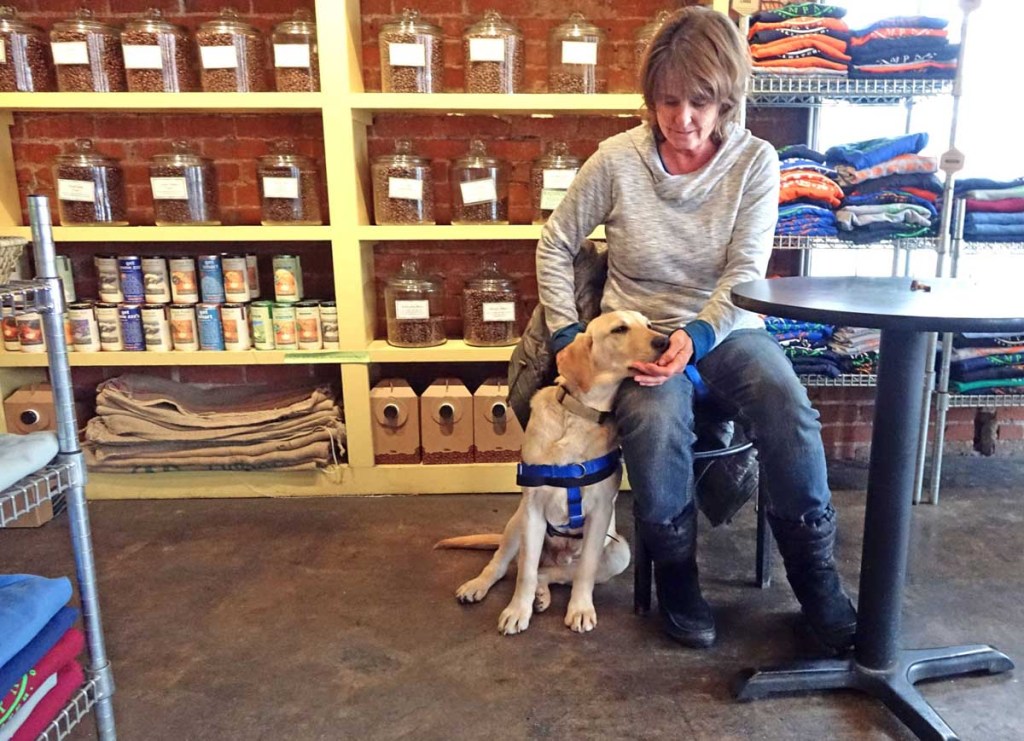Woman provides pets for vets with PTSD
Published 9:49 am Monday, January 4, 2016

- Sharon Dilley, of Stillwater, Oklahoma, rewards Gabriel, a service dog in training, for his positive behavior while at a coffee shop on Tuesday, Dec. 29, 2015.
STILLWATER, Okla. — Sharon Dilley is all about helping U.S. veterans that have served their country.
About a dozen veterans from around the state gather in Guthrie, Oklahoma each week to receive training for themselves and their service dogs that they qualified for through a Honoring America’s Warriors program.
The veterans, suffering from post-traumatic stress or traumatic brain injury with disability ratings between 80 and 100 percent due to time spent in a combat zone, were paired with a puppy that they help train.
“We want veterans to be active in the training process as the puppies grow,” said Scotty “Dee” Deatherage, executive director and co-founder of Honoring America’s Warriors.
According to the National Center for PTSD, pets, service animals, and emotional support dogs need owners who can provide for them. Dogs require constant attention and care. Dogs can help people feel better by providing companionship. All dog owners, including those who have post traumatic stress disorder can experience these benefits.
Dilley, a Stillwater, Oklahoma resident who was raised on a dairy farm and has always loved animals, has been volunteering her time for more than a year since the organization first invited her to be a guest speaker about search and rescue, which is another of her passions.
The former teacher said working with dogs isn’t much different than working with children.
“I set the dog up for success, ignore the bad behavior and reinforce any behavior I want repeated,” she said.
Deatherage is thrilled to have Dilley as a volunteer.
“She has a unique skill set that you just can’t find anywhere,” Deatherage said. “She is very skilled at communicating with the veterans.”
Deatherage has seen quality of life improvements among the participants in the service/companion dog program including one veteran who had his nightmares subside after receiving a puppy.
“If it changes their lives for the better then we have accomplished our goal,” Deatherage said.
The first batch of puppies placed with veterans were German Shepherds but other breeds, including Labradors, have been introduced.
Dilley, who trains with search and rescue teams in both Oklahoma and Kansas, is currently working with a young yellow lab named Gabriel that she got last month from a veterinary clinic in Cushing, Oklahoma with plans to place him with a veteran sometime soon.
Gabriel, who Dilley said likely spent the first part of his life locked away in a dog crate, now lives with Dilley and follows her around everywhere she goes.
“There is somebody who needs him as much as he needs them,” Dilley said. “He is the calmest, quietest, gentlest lab I have every seen in my life.”
Although she knows she will be helping a veteran once Gabriel is placed, she said it will be hard to see him go.
“That veteran better be ready for some home visits,” Dilley joked.
Bitton writes for The Stillwater, Oklahoma News-Press.




